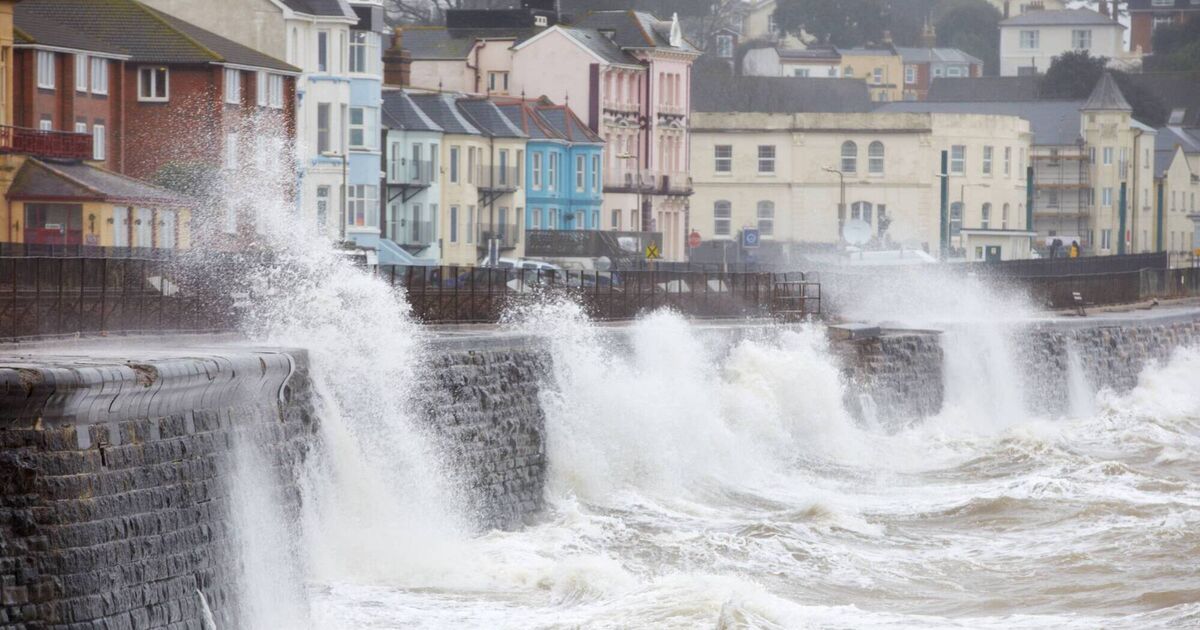If efforts to cut emissions are delayed, Ireland will experience an “unrecognizable” climate, with extreme heat, heavy rain and flooding becoming more severe and frequent, a landmark report has warned.
Ireland’s first climate change assessment report, led by the Environmental Protection Agency (EPA) and written by 23 leading academics, has warned of Ireland’s failure to adapt to the impacts of climate change.
This is the first comprehensive assessment of key aspects of climate change with a focus on Ireland.
Around 16 of Ireland’s 20 warmest years have occurred since 1990, and recent flooding in Middleton has been cited as an example of the impact the country has already experienced. As sea levels continue to rise, storms and extreme waves are an “increasing threat” to the country, particularly to coastal cities and critical infrastructure such as Cork, Dublin and Galway.
Recent research has revealed that sea level rise rates in Cork and Dublin are higher than the global average.
One of the authors, Peter Thorne from Maynooth University, said climate change was already having a real impact in Ireland and showed how ill-adapted the country was to future events. .
Citing the recent “extreme flooding” in Middleton as an example, Prof Thorne said:
Adaptation to protect the country from future climate change impacts is “too slow and piecemeal” and vulnerability will only increase as the population ages.
Prof Thorne said sea levels would continue to rise and would take thousands of years to stabilize “even if we reach net-zero emissions”.
The report said “true heat events”, which are rare in the current climate, are projected to become more common under all scenarios.
“Until this report was completed, 2022 was the hottest year on record. Since then, that position has been usurped by 2023,” Professor Thorne said. I warned you.
This assessment sheds light on where Ireland stands in responding to the climate emergency and provides insight into the scale of the challenge for Ireland to become climate-neutral and climate-resilient.
The assessment states that Ireland’s greenhouse gas emissions have fallen in all sectors except agriculture since their peak in 2001.
Despite this, Ireland currently ranks as the second-highest country in the entire EU for per capita emissions. And while the legal basis is now in place for deep, rapid and sustained national emissions reductions, current measures are insufficient to achieve these objectives.
The report says Ireland has so far made “limited progress” in reducing greenhouse gas emissions and says it has “a long way to go”.
Policies and actions currently in place are inadequate and Ireland is currently not on track to meet these statutory greenhouse gas emission reduction targets.
“Greenhouse gas emissions estimates for 2021 and 2022 show that 47% of Ireland’s initial carbon budget was emitted within 40% of the budget period.” [two years of the five-year budget period]” is written.
Based on various forecasts, rapid action to reduce emissions is likely to result in Ireland’s climate remaining “widely recognizable” compared to today.
But it warns that if action is delayed, Ireland could face an “increasingly unrecognizable” climate, with temperatures rising by 2.77C by the end of the century.
Heavy rain will also become more frequent and extreme, leading to further warming in most parts of Ireland.
“If we can reach net-zero global carbon dioxide emissions by 2050, many of the key components of the climate system, such as temperature and precipitation, will stabilize during the lifetimes of many of today’s young people, and society It’s going to be in the collective interest of all,” said EPA Administrator Laura Burke.
University College Cork Professor Brian O’Garachoir said the changes needed were “unprecedented and far-reaching” and required significant political will, investment and social capacity.
